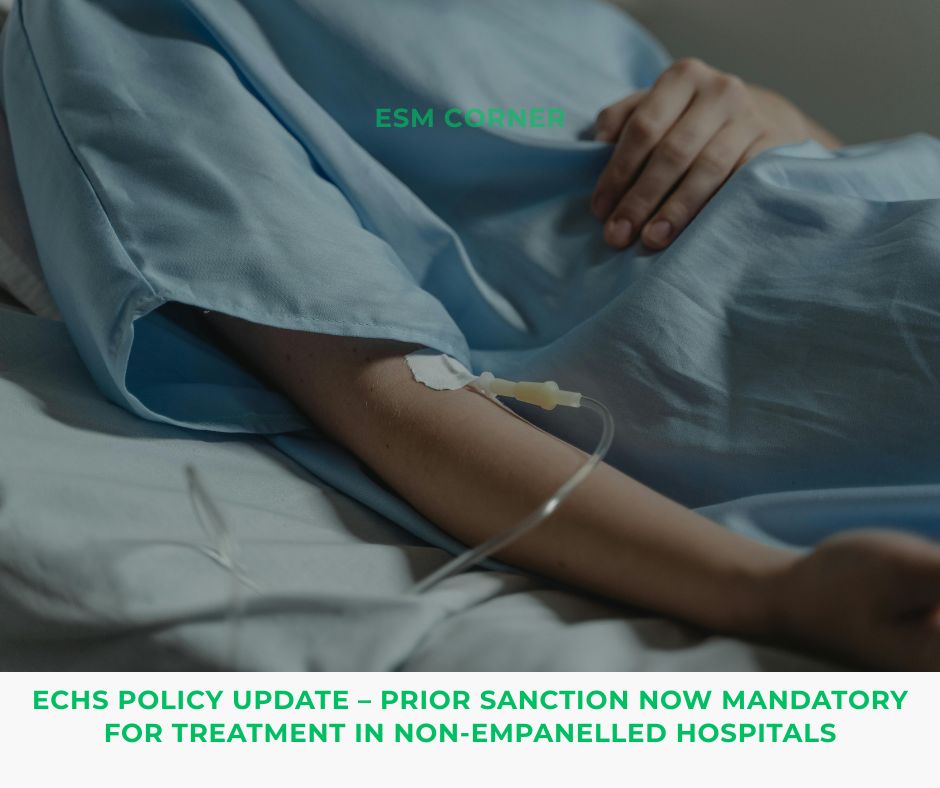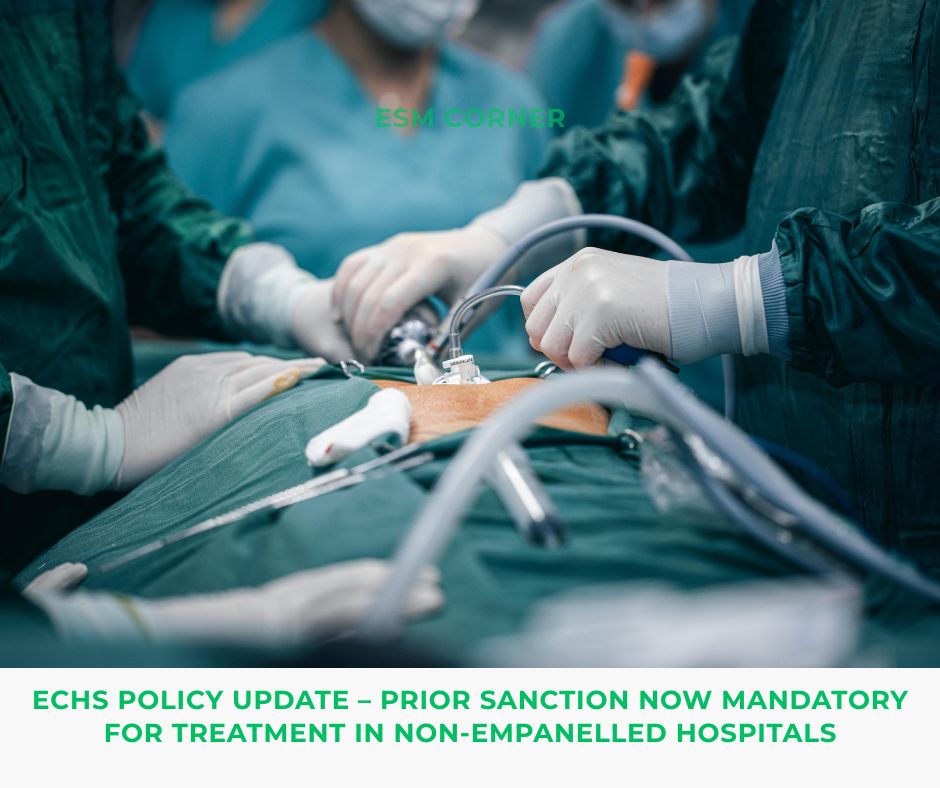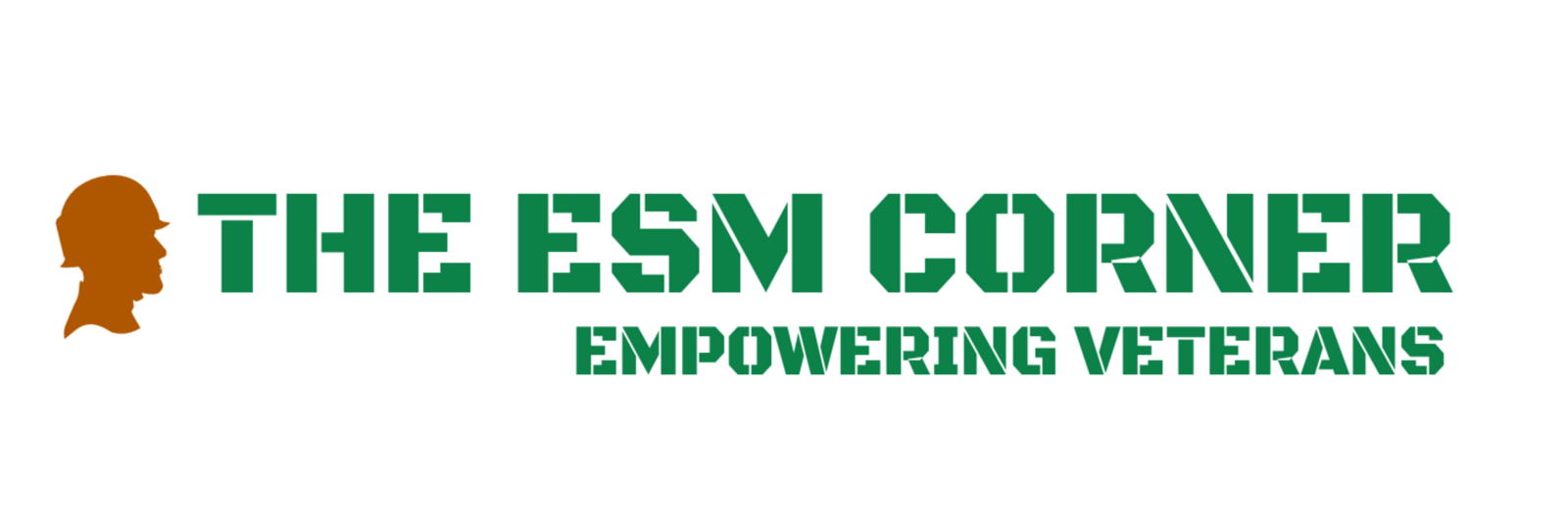
The Ex-Servicemen Contributory Health Scheme (ECHS) is one of the most important welfare programs for retired soldiers, officers, and their families. It provides access to healthcare services at empanelled hospitals across India, offering cashless treatment for a wide range of medical conditions. On 13 August 2025, the Central Organisation ECHS issued a significant policy update that affects how veterans and their dependents access medical treatment at non-empanelled hospitals. From now on, prior sanction is mandatory before seeking treatment in these hospitals, except for emergencies.
Why Was This Change Introduced?
The update was made to ensure proper use of ECHS resources and prevent misuse of reimbursements. In the past, many veterans, especially those living in rural or semi-urban areas, would approach nearby private hospitals that were not empanelled. Sometimes, reimbursements were approved for treatment under special circumstances, even without prior approval.
However, this created inconsistencies and potential misuse. The new rule requires pre-approval for treatment at non-empanelled hospitals, ensuring that all claims are properly verified before expenses are incurred. This helps ECHS allocate resources more efficiently and maintain transparency in healthcare services.
What Does This Mean for Veterans?
The policy clearly defines the process for different types of hospitals:
- Empanelled Hospitals:
- Cashless treatment continues as before.
- Veterans do not need prior sanction.
- Routine treatment, follow-ups, and scheduled procedures can be availed easily.
- Non-Empanelled Hospitals:
- Prior sanction is now mandatory for treatment.
- Treatment without approval may lead to reimbursement denial, except in emergencies.
- Emergencies:
- Approval may be granted after stabilization of the patient.
- Immediate care is allowed, but documentation must be submitted afterward.
This distinction is important for veterans to understand, as failure to follow these rules could result in financial loss or stress during treatment.
Challenges for Veterans
While the update is aimed at improving the system, it may create some challenges:
- Limited empanelled facilities in small towns: Veterans may have to travel farther for approved hospitals.
- Documentation requirements: Proper medical records, prescriptions, and ID proofs are necessary to get approval.
- Awareness issues: Many veterans and families are still unaware of this updated rule, which could lead to confusion.
Veterans living in remote areas should especially pay attention to these requirements to avoid delays in treatment or claim rejections.
Steps Veterans Should Take for Treatment
To ensure a smooth process under the new ECHS guideline, veterans and their families are advised to:
- Verify Empanelment: Always check if a hospital is listed as ECHS-empanelled before planning treatment.
- Apply for Prior Sanction: For planned procedures in non-empanelled hospitals, submit a request for approval well in advance.
- Maintain Documentation: Keep all medical records, prescriptions, test reports, and ID proofs updated and ready.
- Stay Informed: Regularly check ECHS circulars, notifications, and updates to avoid missing critical changes.
Following these steps will save time, prevent stress, and ensure that healthcare benefits are not compromised.

Benefits of the Update
Although the policy may seem like an extra hurdle initially, it has important benefits:
- Transparency: Every claim is pre-approved, reducing chances of errors or misuse.
- Efficient Resource Allocation: ECHS funds are used more wisely, ensuring better facilities for all veterans.
- Standardized Process: Veterans will know exactly what is required for treatment at non-empanelled hospitals.
- Peace of Mind: With clear rules, families can plan medical treatment without worrying about claim rejection.
Conclusion
The new ECHS rule making prior sanction mandatory for non-empanelled hospitals is a step toward more transparent and efficient healthcare management for veterans. While it may require extra planning, proper documentation, and awareness, the change is ultimately beneficial for both the ECHS system and the veteran community.
Veterans and their families are encouraged to plan treatments in advance, verify hospital empanelment, and maintain all records properly. By staying informed and following these guidelines, ex-servicemen can continue to access quality healthcare without stress, ensuring their health and well-being are protected.
ALSO READ I 10 MUST-KNOW BENEFITS AND UPDATES FROM THE DIRECTORATE OF CANTEEN SERVICES IN 2025






I shall be happy to remain informed by the latest ECHS guidelines as and when these are issued .